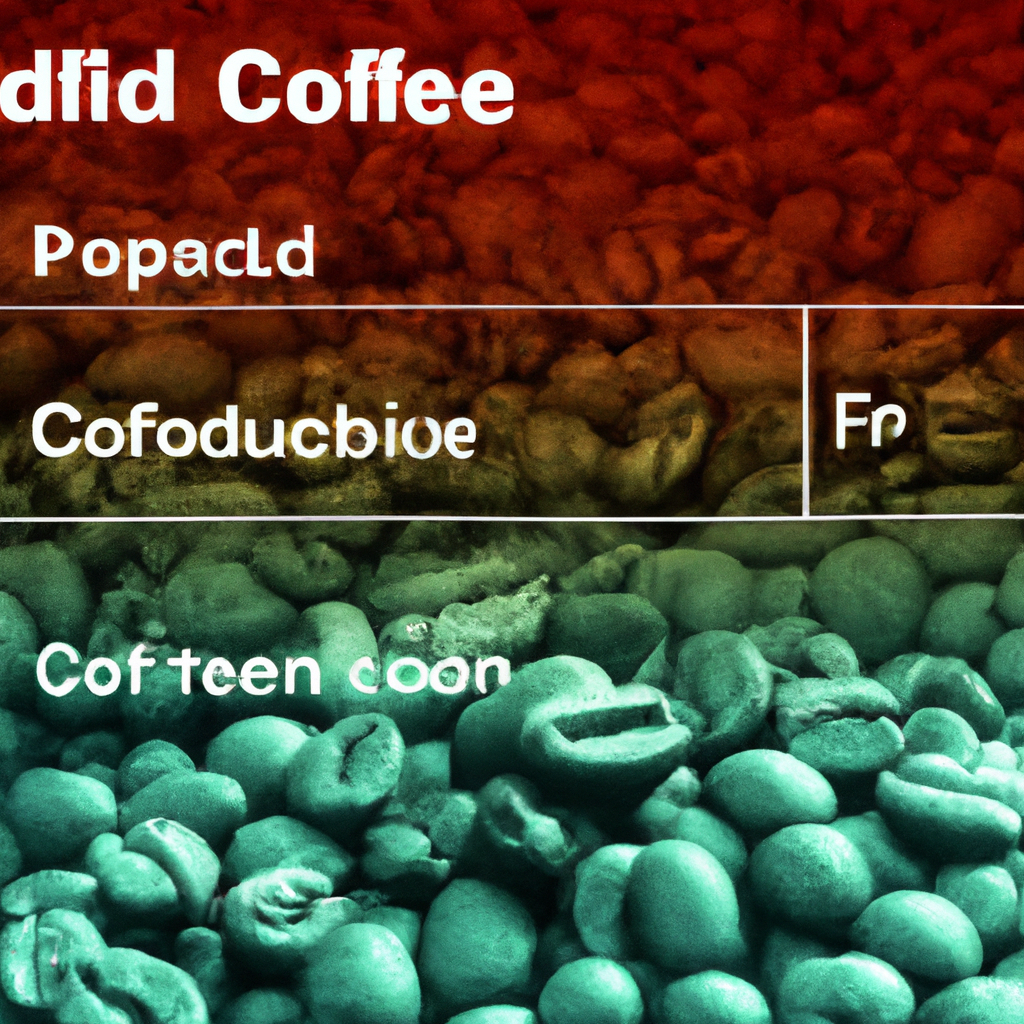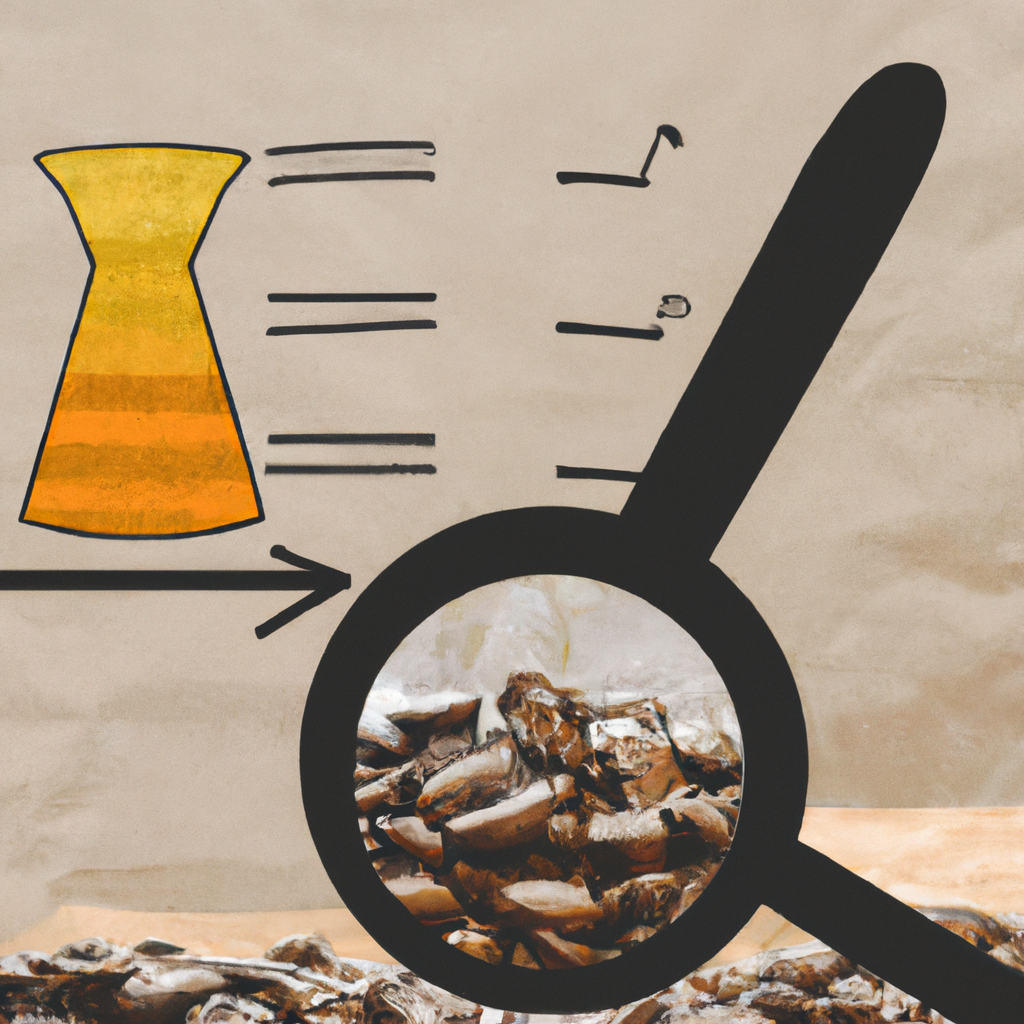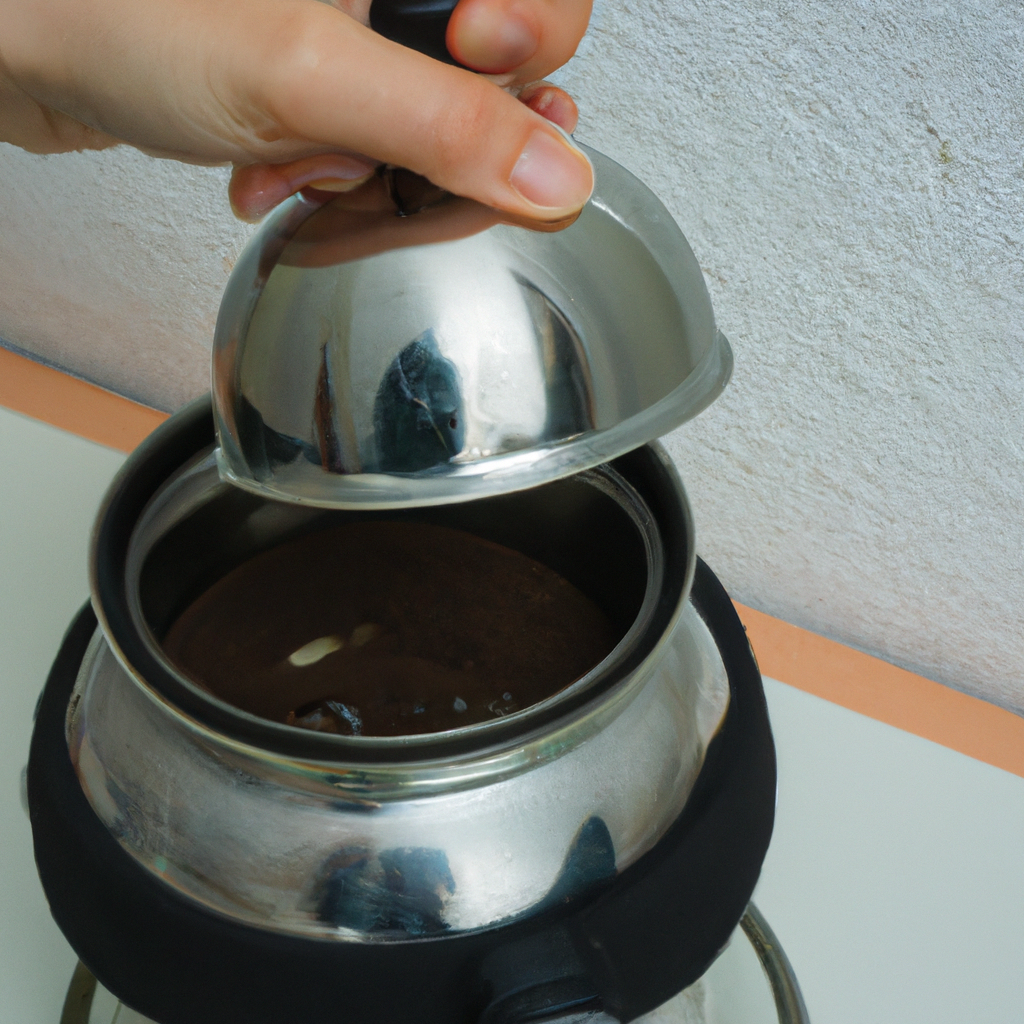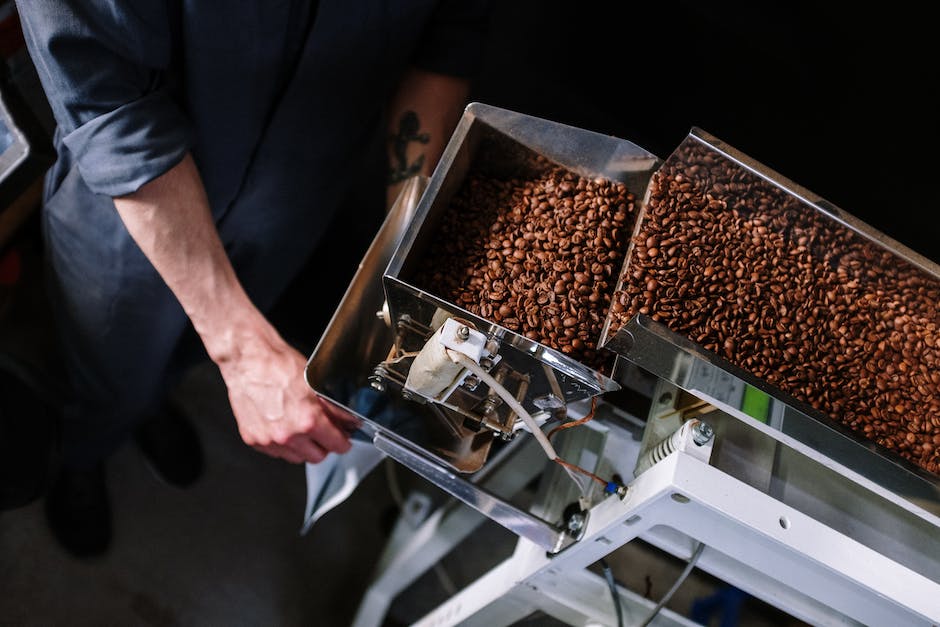-
Table of Contents
Introduction
Coffee is one of the most popular beverages in the world, with millions of people consuming it daily. However, many coffee drinkers are concerned about the chemicals used in the production of coffee beans. In this article, we will explore whether coffee beans are chemically treated and what impact this may have on the quality and safety of the coffee we drink.
The Effects of Chemical Treatment on Coffee Beans
Coffee is one of the most popular beverages in the world, with millions of people consuming it every day. However, many coffee drinkers are unaware of the chemical treatment that coffee beans undergo before they reach their cups. In this article, we will explore the effects of chemical treatment on coffee beans.
Chemical treatment is a process that involves the use of chemicals to enhance the flavor, aroma, and appearance of coffee beans. The most common chemicals used in this process are pesticides, herbicides, fungicides, and fertilizers. These chemicals are used to protect the coffee plants from pests and diseases, increase their yield, and improve their quality.
However, the use of chemicals in coffee production has raised concerns about their impact on human health and the environment. Pesticides and herbicides, for example, have been linked to various health problems, including cancer, reproductive disorders, and neurological damage. They can also contaminate the soil, water, and air, leading to environmental degradation.
Moreover, chemical treatment can affect the taste and aroma of coffee. Some chemicals can alter the natural flavor and aroma of coffee, making it taste and smell different from its organic counterpart. This can be a problem for coffee connoisseurs who value the natural taste and aroma of coffee.
Another issue with chemical treatment is that it can reduce the nutritional value of coffee. Chemicals can deplete the soil of essential nutrients, which can affect the quality of the coffee beans. This can lead to a decrease in the nutritional value of coffee, which can be a concern for health-conscious consumers.
Despite these concerns, chemical treatment is still widely used in coffee production. This is because it is a cost-effective way to increase the yield and quality of coffee beans. However, there are alternatives to chemical treatment that can produce high-quality coffee without the use of harmful chemicals.
One such alternative is organic coffee. Organic coffee is grown without the use of synthetic pesticides, herbicides, and fertilizers. Instead, organic farmers use natural methods to protect their coffee plants from pests and diseases, such as crop rotation, composting, and the use of natural predators.
Organic coffee is not only better for the environment but also for human health. It is free from harmful chemicals that can cause health problems and is rich in nutrients that are essential for good health. Moreover, organic coffee has a natural flavor and aroma that is highly valued by coffee connoisseurs.
Another alternative to chemical treatment is shade-grown coffee. Shade-grown coffee is grown under a canopy of trees, which provides natural protection from pests and diseases. This method of coffee production is not only environmentally friendly but also produces high-quality coffee with a unique flavor and aroma.
In conclusion, chemical treatment can have a significant impact on the quality, taste, and nutritional value of coffee. It can also have harmful effects on human health and the environment. However, there are alternatives to chemical treatment, such as organic and shade-grown coffee, that can produce high-quality coffee without the use of harmful chemicals. As consumers, we have the power to choose coffee that is produced in an environmentally friendly and socially responsible manner. By choosing organic or shade-grown coffee, we can support sustainable coffee production and enjoy a delicious cup of coffee that is good for us and the planet.
The Pros and Cons of Using Chemically Treated Coffee Beans
Coffee is one of the most popular beverages in the world, with millions of people consuming it every day. However, not all coffee is created equal. Some coffee beans are chemically treated, while others are not. This raises the question: are coffee beans chemically treated? The answer is yes, some coffee beans are chemically treated. In this article, we will explore the pros and cons of using chemically treated coffee beans.
First, let’s define what we mean by chemically treated coffee beans. Coffee beans are treated with chemicals to remove the outer layer of the bean, which is called the parchment. This process is called “wet processing” and involves soaking the beans in water and then using chemicals to remove the parchment. The chemicals used in this process include hydrochloric acid, sulfuric acid, and ethyl acetate.
One of the main advantages of using chemically treated coffee beans is that it can improve the flavor of the coffee. The chemicals used in the wet processing method can help to remove any unwanted flavors or aromas from the beans, resulting in a smoother and more consistent taste. This is particularly important for coffee roasters who want to create a consistent flavor profile for their customers.
Another advantage of using chemically treated coffee beans is that it can increase the yield of the beans. The wet processing method can remove more of the outer layer of the bean, which means that there is less waste and more coffee beans can be produced from each batch. This can be particularly beneficial for coffee farmers who are looking to increase their profits.
However, there are also some disadvantages to using chemically treated coffee beans. One of the main concerns is the potential health risks associated with consuming chemicals that have been used in the wet processing method. While the chemicals used in this process are generally considered safe, there is still a risk that they could be harmful if consumed in large quantities over a long period of time.
Another concern is the environmental impact of using chemically treated coffee beans. The chemicals used in the wet processing method can be harmful to the environment if they are not disposed of properly. This can include contaminating water sources and damaging ecosystems.
In addition, some coffee drinkers prefer to avoid chemically treated coffee beans because they believe that it is not as natural as coffee that has been processed using other methods. They argue that coffee should be grown and processed using natural methods, without the use of chemicals.
In conclusion, the use of chemically treated coffee beans has both pros and cons. While it can improve the flavor of the coffee and increase the yield of the beans, there are also concerns about the potential health risks and environmental impact of using chemicals in the wet processing method. Ultimately, the decision to use chemically treated coffee beans will depend on a variety of factors, including personal preference, cost, and availability. As a consumer, it is important to be aware of the different processing methods used to produce coffee and to make an informed decision about which type of coffee to consume.
How to Identify Chemically Treated Coffee Beans
Coffee is one of the most popular beverages in the world, with millions of people consuming it every day. However, not all coffee is created equal. Some coffee beans are chemically treated, which can have negative effects on both the environment and the consumer. In this article, we will explore how to identify chemically treated coffee beans.
Firstly, it is important to understand what chemical treatment means in the context of coffee beans. Chemical treatment refers to the use of synthetic pesticides, herbicides, and fertilizers during the cultivation of coffee plants. These chemicals are used to increase crop yields and protect the plants from pests and diseases. However, they can also have harmful effects on the environment and the health of those who consume the coffee.
One way to identify chemically treated coffee beans is to look for organic certification. Organic coffee is grown without the use of synthetic pesticides, herbicides, and fertilizers. Instead, organic farmers use natural methods to protect their crops, such as companion planting and composting. Organic certification is a rigorous process that ensures that the coffee beans are grown and processed according to strict standards. Look for the USDA Organic or the European Union Organic logo on the packaging to ensure that the coffee beans are organic.
Another way to identify chemically treated coffee beans is to look for Fair Trade certification. Fair Trade certification ensures that the coffee beans are grown and harvested by farmers who are paid a fair price for their work. Fair Trade also promotes sustainable farming practices and prohibits the use of synthetic pesticides, herbicides, and fertilizers. Look for the Fair Trade logo on the packaging to ensure that the coffee beans are ethically sourced.
You can also look for coffee beans that are shade-grown. Shade-grown coffee is grown under a canopy of trees, which provides natural protection from pests and diseases. Shade-grown coffee also promotes biodiversity and helps to preserve the natural habitat of birds and other wildlife. Look for the shade-grown label on the packaging to ensure that the coffee beans are grown in a sustainable and environmentally friendly way.
Finally, you can look for coffee beans that are labeled as “natural” or “washed”. Natural coffee beans are dried with the fruit still intact, while washed coffee beans are washed to remove the fruit before drying. Both methods are considered to be more environmentally friendly than the “semi-washed” method, which uses chemicals to remove the fruit. Look for the natural or washed label on the packaging to ensure that the coffee beans are processed in a sustainable and environmentally friendly way.
In conclusion, there are several ways to identify chemically treated coffee beans. Look for organic certification, Fair Trade certification, shade-grown labels, and natural or washed labels on the packaging. By choosing coffee beans that are grown and processed in a sustainable and environmentally friendly way, you can enjoy your coffee while also protecting the environment and your health.
The Impact of Chemical Treatment on Coffee Bean Flavor
Coffee is one of the most popular beverages in the world, with millions of people consuming it every day. However, many coffee drinkers are unaware of the chemical treatment that coffee beans undergo before they are roasted and brewed. This article will explore the impact of chemical treatment on coffee bean flavor.
Chemical treatment is a process that involves the use of chemicals to remove impurities and improve the quality of coffee beans. The most common chemicals used in coffee processing are methylene chloride, ethyl acetate, and propylene glycol. These chemicals are used to remove the caffeine from the beans, which is then sold to pharmaceutical companies and soft drink manufacturers.
Methylene chloride is a solvent that is used to extract caffeine from coffee beans. It is a colorless, volatile liquid that has a sweet odor. Methylene chloride is a carcinogen and has been linked to cancer in laboratory animals. However, the amount of methylene chloride that remains in the coffee beans after processing is very small and is considered safe for human consumption.
Ethyl acetate is a natural compound that is found in fruits and vegetables. It is used as a solvent to extract caffeine from coffee beans. Ethyl acetate is considered safe for human consumption and is commonly used in the food industry as a flavoring agent.
Propylene glycol is a synthetic compound that is used as a solvent to extract caffeine from coffee beans. It is also used as a humectant in food and cosmetic products. Propylene glycol is considered safe for human consumption and is approved by the FDA for use in food and cosmetics.
Chemical treatment can have a significant impact on the flavor of coffee beans. The use of methylene chloride can result in a loss of flavor and aroma in the coffee beans. This is because methylene chloride can strip away some of the volatile compounds that give coffee its unique flavor and aroma.
Ethyl acetate, on the other hand, can enhance the flavor of coffee beans. This is because ethyl acetate is a natural compound that is found in fruits and vegetables. It can help to preserve the natural flavor and aroma of coffee beans, resulting in a more flavorful cup of coffee.
Propylene glycol has a neutral flavor and does not have a significant impact on the flavor of coffee beans. However, it can help to preserve the natural flavor and aroma of coffee beans, resulting in a more flavorful cup of coffee.
In conclusion, chemical treatment is a common practice in the coffee industry. While it can have a significant impact on the flavor of coffee beans, the use of chemicals such as methylene chloride, ethyl acetate, and propylene glycol is considered safe for human consumption. Coffee drinkers should be aware of the chemical treatment that coffee beans undergo and choose coffee that has been processed using natural methods if they are concerned about the impact of chemicals on flavor. Ultimately, the choice of coffee is a personal one, and coffee drinkers should choose the coffee that they enjoy the most.
Alternatives to Chemically Treated Coffee Beans
Coffee is one of the most popular beverages in the world, with millions of people consuming it every day. However, many coffee lovers are unaware of the fact that some coffee beans are chemically treated. This is done to increase their shelf life, improve their appearance, and enhance their flavor. While this may seem like a good idea, it can have negative effects on both the environment and our health. Fortunately, there are alternatives to chemically treated coffee beans that are just as delicious and healthy.
One of the most popular alternatives to chemically treated coffee beans is organic coffee. Organic coffee is grown without the use of synthetic fertilizers, pesticides, or herbicides. This means that the coffee beans are free from harmful chemicals that can harm the environment and our health. Organic coffee is also grown using sustainable farming practices, which help to protect the soil, water, and wildlife.
Another alternative to chemically treated coffee beans is shade-grown coffee. Shade-grown coffee is grown under a canopy of trees, which provides a natural habitat for birds and other wildlife. This type of coffee farming helps to protect the environment by reducing the need for synthetic fertilizers and pesticides. Shade-grown coffee also has a unique flavor profile that is different from other types of coffee.
Fair trade coffee is another alternative to chemically treated coffee beans. Fair trade coffee is grown by small-scale farmers who are paid a fair price for their coffee beans. This helps to support local communities and ensures that farmers are able to make a living wage. Fair trade coffee is also grown using sustainable farming practices, which help to protect the environment.
If you are looking for a more exotic alternative to chemically treated coffee beans, you may want to try coffee from Ethiopia. Ethiopian coffee is grown using traditional farming methods that have been passed down for generations. The coffee beans are hand-picked and sun-dried, which gives them a unique flavor profile that is different from other types of coffee. Ethiopian coffee is also grown using sustainable farming practices, which help to protect the environment.
If you are looking for a more affordable alternative to chemically treated coffee beans, you may want to try coffee from Colombia. Colombian coffee is known for its rich flavor and aroma, and it is grown using sustainable farming practices. Colombian coffee is also affordable, making it a great choice for coffee lovers on a budget.
In conclusion, there are many alternatives to chemically treated coffee beans that are just as delicious and healthy. Organic coffee, shade-grown coffee, fair trade coffee, Ethiopian coffee, and Colombian coffee are all great options for coffee lovers who want to enjoy a delicious cup of coffee without harming the environment or their health. By choosing these alternatives, you can support sustainable farming practices and help to protect the environment for future generations.
Conclusion
Conclusion: Coffee beans can be chemically treated, but not all coffee beans are treated. It is important to research and choose coffee brands that use ethical and sustainable farming practices to ensure the highest quality and healthiest coffee beans.





